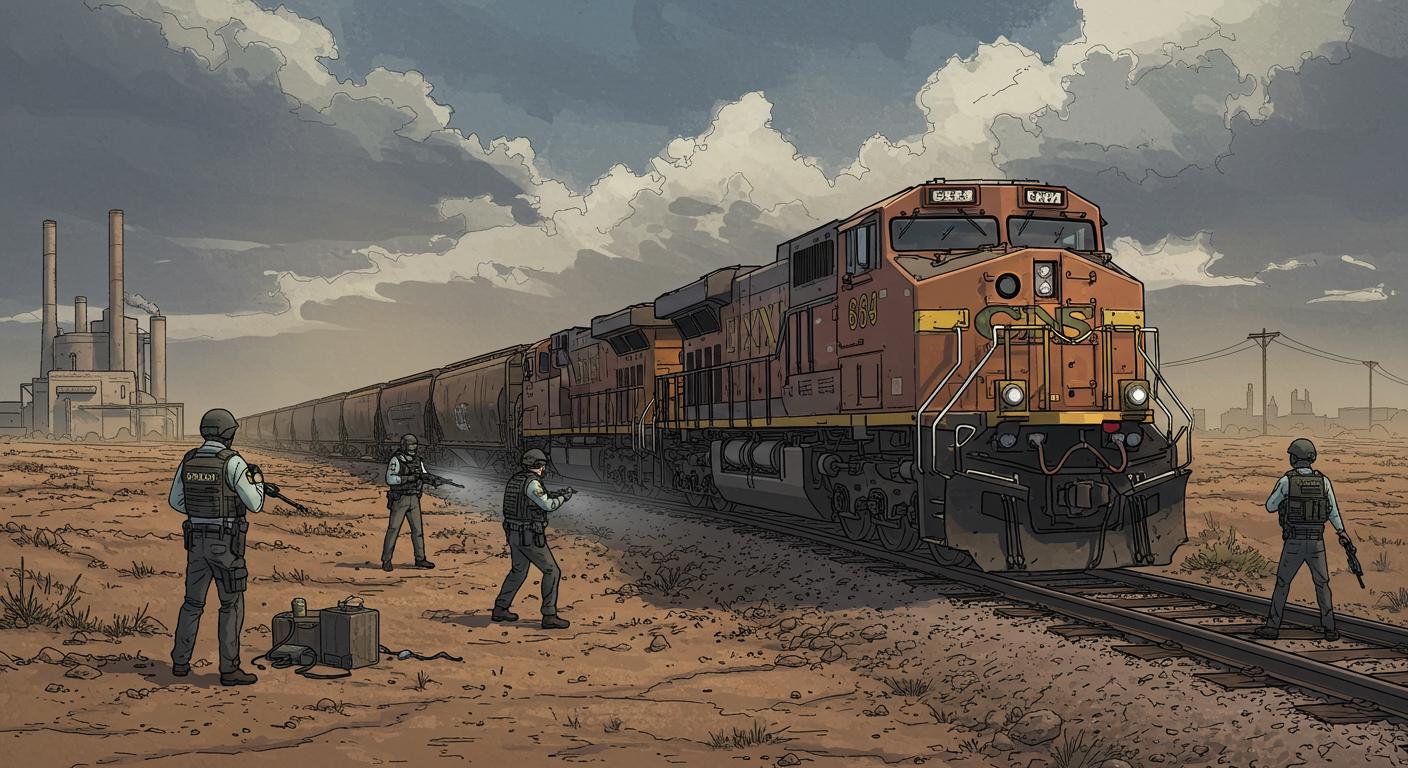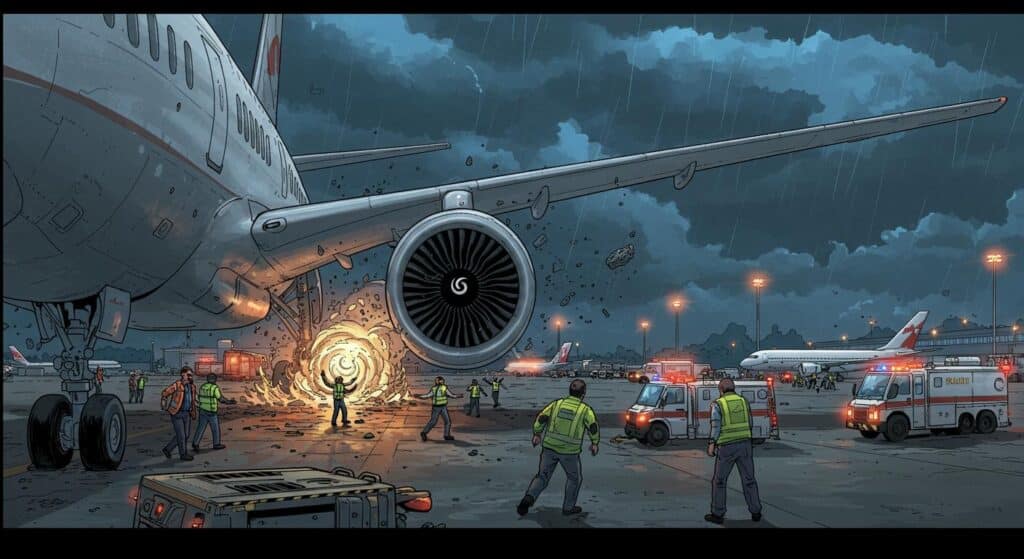If you’ve ever been stuck behind a fuel truck on I-5, perhaps you’ve briefly drifted off into the idle question of just how much gasoline those massive tankers actually carry. Now, imagine multiplying that by, say, a few thousand—and then discovering the entire cargo apparently just… parked and forgotten near the Texas border. As detailed in this AP report, Mexican authorities recently seized roughly 4 million gallons of stolen diesel, gasoline, and petroleum distillates. The catch? All of it was stashed on two, apparently abandoned, trains near Ramos Arizpe and Saltillo in Coahuila state, a fact also highlighted by ABC News.
It might sound like the prologue to a particularly high-budget heist film, but patience: this plot has all the hallmarks of real-world intrigue.
Ghost Trains and Missing Paperwork
It’s not every day law enforcement stumbles across a couple of idle trains with no sign of crew, no shipping papers, and enough flammable liquid to fill an Olympic swimming pool over 60 times. According to AP, Mexican Security Secretary Omar García Harfuch stated the trains were found with no immediate indication of where the fuel came from or where it was headed. García Harfuch did not confirm whether this find links to the recent dismantling of a fuel theft ring in central Mexico—an operation involving 32 arrests—which both outlets chronicle in their reporting.
In a detail noted by both AP and ABC News, authorities found no paperwork identifying the origin, owner, or intended recipient of the fuel. As a result, the suspects quite literally left behind no helpful trail of breadcrumbs—just two fuel-laden ghost trains parked near the border.
Huachicol: The Shadow Economy of Stolen Fuel
If you haven’t encountered the term before, “huachicol” refers to stolen fuel—a term you’ll hear a lot in Mexican coverage of the nation’s ongoing petroleum cat-and-mouse game. Both AP and ABC News point out that Pemex, the state-owned oil company, reported losing nearly $3.8 billion from 2019 to 2024 thanks to theft. That’s not exactly a rounding error.
Organized crime has been known to tap pipelines and, in some accounts detailed by AP, coerce legitimate gas stations into buying or distributing illicit fuel. U.S. authorities have even accused the Jalisco New Generation cartel of operating their own service stations, according to ABC News. Anyone else picturing a drive-thru window staffed by someone in aviators with a suspiciously nervous smile?
Adding to the complications, ABC News notes that some recent cases involve cartels illegally importing petroleum into Mexico and selling it without paying import duties. Back in March, both outlets mention authorities also intercepted a boat carrying some 2.6 million gallons of questionable fuel in Tamaulipas’ Tampico port. Rail, sea, or pipeline—if it moves fossil fuels, it seems it’s fair game for inventive theft.
A Record-Breaking Seizure, or Just the Tip of the Oilberg?
García Harfuch described this as the largest fuel seizure so far during President Claudia Sheinbaum’s administration, as reported by AP. Still, the precise tip-off remains undisclosed. Was it an eagle-eyed railway worker, a paperwork snafu, or simply the conspicuous sight of two entire fuel-filled trains abandoned in the middle of Coahuila? Whatever the case, authorities responded, and now find themselves with a giant puzzle to piece together.
With so many moving parts—sometimes literally, considering these were trains—the tug-of-war between Mexican officials and the “huachicol” underworld continues. And, as AP observes, the tactics seem to evolve with the times. Is this bust a sign that the tide is turning? Or merely one successful round in a much larger, ongoing game?
Closing the Loop—Or Just Another Cycle?
What lingers, beyond the staggering numbers and Hollywood-worthy setup, is the realization that, while these discoveries grab headlines, the underlying economics and influence of black-market fuel seem stubbornly resilient. Is it possible to truly curb the trade when the incentives and infrastructure are so deeply embedded?
Four million gallons sitting in limbo on abandoned trains is certainly a new one for the record books—but history (and highway billboards) suggest this saga is far from over. Perhaps it’s less about the train robbery of the century, and more about a perpetual shell game—sometimes you find the shells, sometimes you find 4 million gallons of diesel, and you never quite know which is more astonishing.







